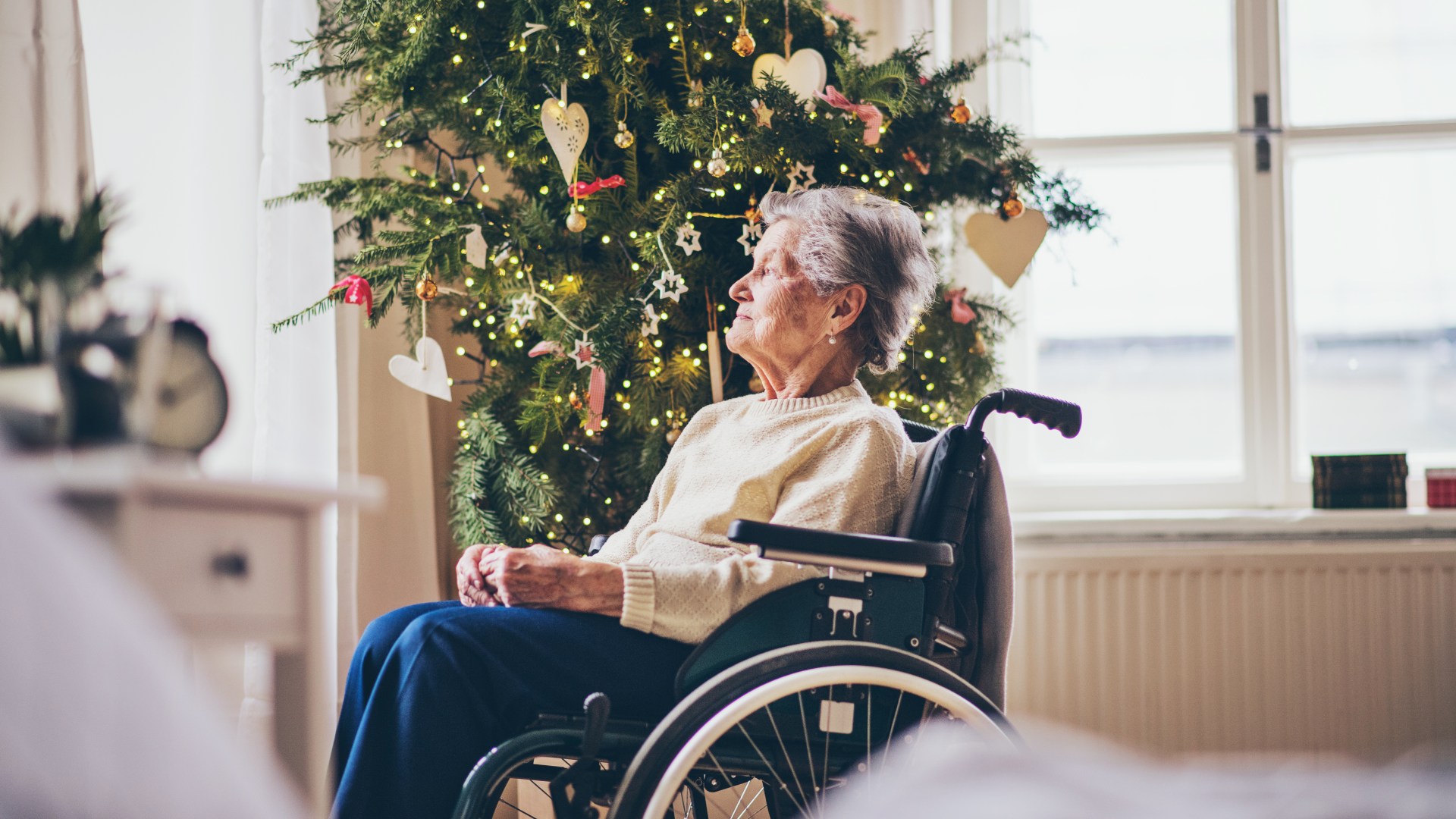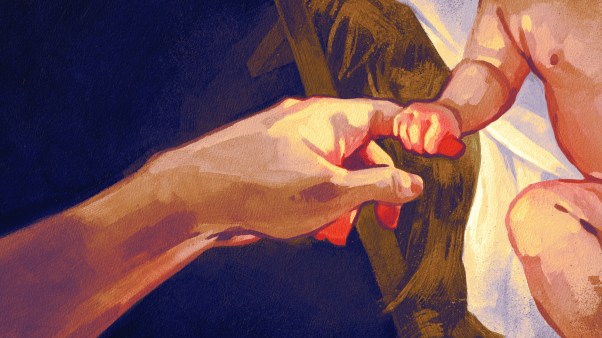Among the tragedies of the COVID-19 pandemic is the devastating toll on the elderly, particularly those in nursing homes. Often relegated to the shadows, story after story unveils the unique vulnerability of nursing home populations. The Associated Press reports that aside from thousands of elderly Americans dying directly due to COVID-19, more have died and will continue dying indirectly due to overworked caretakers and their lack of resources. Such a crisis calls for reflection on our obligations to our elderly family members. They are not burdens to be saddled with but persons whose dignity can be recognized as we reimagine what it means to be vulnerable and dependent.
Most of us probably recount visiting a nursing home to see a family member or friend or singing Christmas carols for the residents. The kindness felt gets marred by the visceral feeling of misery, loneliness, and detachment evident on many faces. Nursing homes do their best to offer care with dignity, but only so much care and attention is available given the limits of staff and resources. I leave nursing homes forlorn, wondering whether there’s another way to care for our elders.
As David Brooks wrote in a must-read feature essay in The Atlantic, the nuclear family experiment so common today runs counter to the historical norm and impedes intergenerational connection. Before America’s material boom enabled two parents and their children to live by themselves, households commonly offered residence to a broader kin network. Aged parents expected care from their adult children. The circle of life completes as children enter the world cared for by parents, and parents leave this world cared for by their children. But now, old age has become a stage of life we can put out of sight until time forces its effects on us personally.
Brooks’s essay argues how the hyper-efficiency of American living arrangements, coupled with medical technology, made it possible to care for elderly family members outside of their children’s homes. While long-term care facilities do serve in instances where complexity of care exceeds the ability of untrained family members, Christians should challenge the tendency of the elderly to reside in nursing homes rather than in our own homes. The inherent dignity of all people means recognizing human dignity at every stage of life, from natural life to natural death. This ethic stands in line with Scripture, which tells us that “You shall stand before the gray head and honor the face of an old man, and you shall fear God: I am the Lord” (Lev. 19:32, ESV). Scripture calls for children to honor their parents at all stages, not just as adolescents.
Is extending life at all possible costs greater than receiving the love, care, and compassionate mercy of those who have known us our whole lives?
To reconfigure the default means to challenge the assumption that medical advancement and medical efficiencies always promote a culture that is the most humane option. It means reconfiguring primary considerations about life’s reach: Is extending life at all possible costs (and at backbreaking financial cost) greater than receiving the love, care, and compassionate mercy of those who have known us our whole lives?
These questions are not theoretical or academic. For years, at a high cost to their freedom and time, my in-laws have cared for one set of parents in their home and another outside of their home. My wife’s grandparents first entered my in-laws’ home quite independent. They were a spry couple with a fantastic sense of humor. But slowly, the passage of time has taken its toll, as both are now in their 90s. Hearing, vision, and general lucidity are quietly declining. And there may come a time where care is no longer sustainable inside the home. Still, amid the frustrations and stress of taking on such care, it is beautiful to see my father-in-law care for his parents—to talk deliberately so both can understand, to help identify the food on their plate, to do his best not to make himself look inconvenienced by their pace. Before they lived with him, my father-in-law had made his intentions clear with his parents, that he wanted to care for them. It is one of the qualities I admire most about him.
As a child, my grandmother came to our home to die, wracked by leukemia. As sad as it was, I remember my mother’s endearing service to her mother. There was something beautiful about a completed life cycle: Those who cared for you at the start of your life were then cared for by the same at the end of theirs. To the best of my ability, I hope to care for my parents and have already communicated to them my intentions. I want to do this, despite all the unknowns and my naiveté over the difficulty this obligation may bring. But someday the unknown will become known, and as I once relied upon them, they will experience what it is to rely on others.
As we gather this holiday season—with whatever socially distanced means available—let us remember how those around our tables and hearths will someday need our help in daily life. Their current state of self-sufficiency will ebb into dependence. Are we cultivating virtues of compassion and care in order to welcome the aged into our homes? Most look forward to the empty nest phase of life, but perhaps it is time we reconsider whether those nests are owed to others.
Andrew T. Walker is associate professor of Christian ethics and apologetics at The Southern Baptist Theological Seminary.










